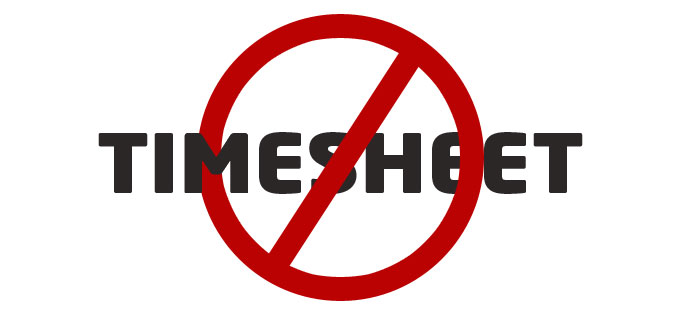After a careful study of Ron Bakers book Firm of the Future, on January 1, 2010, I trashed my timesheet. Well, there was a little more to it than just Ron’s book, but I can say with all honesty, the book was the inspiration. For the past six years, I have been so confused with this idea of keeping every six minutes of my work day accounted for. I did it, I did not understand it, and I despised it. Billable, Billable, Billable; all we have to sell is our time, I would chant repeatedly over and over in my head in a methodical drill sergeant’s tone. My goal in this three-part submission is to share my expierence on what it was like using timesheets, how I did it, and what it was like without timesheets.
The billable days were filled with Monday morning WIP meetings. Hmmmmmmmm, a WIP meeting consisted of my dad and I talking (screaming) about what, when, how much and where we were going to bill our clients. It took up most of the morning and always set a cheery tone for the entire week. Then we had to deal with a bill going out late, purposely dodging Monday morning WIP meetings and bitching clients. I began to question professional service work and wondered if I truly had the thick skin to deal with this for the rest of my career. One day, mid-2009, I was reading my Twitter account and there was a post from the JOA citing Ron Baker and the death of the billable hour. I watched the video; it didn’t make sense at the first sitting. The video challenged the billable hour formula versus value pricing. While it did not make sense, I knew I was not going to last in this profession repeating an action I did not understand. I ordered the book and began tearing though it. DISCLAIMER: “Trashing the timesheet” is only a piece of the big puzzle. I quickly learned that it would take a giant overhaul of attitude, mind and faith for this to work. The more I read, the more it clicked. This led me to interview early adopters of the process and study the theory behind value pricing. All arrows were pointing up. Once I felt comfortable talking about the topic, I approached the partner (my dad) on this idea. To give you a little background on my dad, he and his brothers are celebrating their 35-year anniversary this year as a public accounting firm in Jacksonville, Fla. For the past 35 years, he has accounted for every six minutes of his work (you can imagine how our first conversation about changing this went). The more I approached him with substance, the more he listened. In late October 2009, during one of our conversations, he agreed as of January 1, 2010, we would no longer track our time. There was no turning back now. In my next post I will explain how I transitioned away from the timesheet to Fixed Price Agreements.
